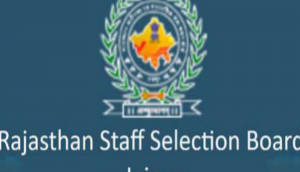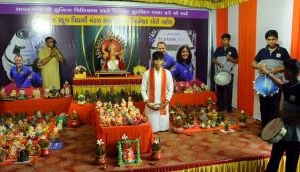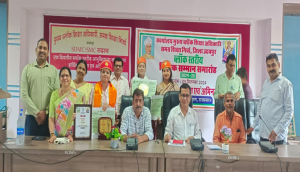
In an effort to promote scientific environment in India, three Nobel Laureates on Thursday asked the government and private sector to promote startups and foster innovation.
William E Moerner (Nobel Prize winner, Chemistry, 2014), Harold Varmus (Nobel Prize winner, Physiology/Medicine, 1989) and Serge Haroche (Nobel Prize winner, Physics, 2012) recommended that the Indian government should give incentives to banks so that they can easily fund startups and scientific research.
"Startup companies are important. We must have new ideas and innovation around us. Our advice is to finance startups. Give incentives to the bank so that they can lend money on lower rates. Focus on a variety of startups. A mindset should be developed," said the scientists.
"Basic science should be developed through startups. Government should fund research in academic institutes, make it easier and attractive. Startups should be favoured," Haroche told Catch.
Citing the example of Cambridge University, Varmus said, "Cambridge University created 60,000 jobs by helping startups thrive within and around the campus."
The three Laureates were speaking at the Delhi Chapter of the Nobel Prize Series India 2017. The Laureates also had a discussion with Prime Minister Narendra Modi at the Vibrant Gujarat Summit in Gandhinagar on January 11. According to them, PM Modi "listened to our suggestions," and seemed interested in the connection between science and business.
Also Read: Delhi Government to match IIIT Delhi's fund raise; to invest Rs 15 crore in higher education
Donald Trump & the Anti-Scientific Society
When asked about Donald Trump and his refusal to acknowledge climate crisis or favour vaccinations, Moerner admitted, "Things don't look good. But I don't know what's going to happen. After all, he did not repeal US' insurance system."
Reiterating similar views, Varmus also admitted that he did not feel enthusiastic about Trump administration and their threat to pull out of the Paris Climate Agreement.
"It's difficult to fight the anti-scientific society. It is very dangerous. They have an obstructed view," says Haroche, further admitting that such views are taking over in US and European countries at an alarming rate.
Explaining on the reasons behind the culture of anti-science, he says, "People are frustrated. There's resentment against society. These are fertile grounds for unscientific thoughts."
Recalling the measles outbreak in California in 2015, Haroche said that several parents refused to vaccinate their children.
The scientists advised the audience to connect with people and engage with them. "We should try to find a way out of problems rather than saying there is no problem," says Moerner.
Encouraging Science, Fighting Anti-Science
Investing in education is one of the ways to fight this, says Haroche, adding that 3% of the country's GDP should be dedicated to scientific research. "The government is responsible for actions that lead to development of these things. Politicians should keep tabs on what is happening. They should base actions on science, on facts and solutions," he said.
"India is an open democratic society. We need to protect free thinking. However, Indian scientists here are still fighting astrology. Planetary positions have something to do with skies, nothing to do human fate," he adds.
"Government has to invest in humans for growth in knowledge," said Varmus while citing examples from across the world.
To achieve success, one has to go through various stage of probabilities and failures. "Failures happen. But probabilities are important. There's no 100% certainty, but if we say something with 95% certainty, it is a safe bet. Scientists make explanations based on choices available to them, and help us predict future," said Moerner.
The scientists unanimously agreed that by investing in education and teachers, youth can change things and look up to science again. Citing the example of South Korea, the Nobel Laureates praised the way the country gives importance to teachers. "They have difficult selection process. The teacher is paid as high as an engineer. Motivated teachers propel young people towards scientific research," they added.
On a lighter note, French physicist Haroche admitted TV series such as The Big Bang Theory is "all jokes" and no science. "Same goes for Breaking Bad -- no science," he says, later advising youth to watch good scientific programmes on the BBC.
First published: 13 January 2017, 2:13 IST







![BJP's Kapil Mishra recreates Shankar Mahadevan’s ‘Breathless’ song to highlight Delhi pollution [WATCH] BJP's Kapil Mishra recreates Shankar Mahadevan’s ‘Breathless’ song to highlight Delhi pollution [WATCH]](https://images.catchnews.com/upload/2022/11/03/kapil-mishra_240884_300x172.png)

![Anupam Kher shares pictures of his toned body on 67th birthday [MUST SEE] Anupam Kher shares pictures of his toned body on 67th birthday [MUST SEE]](https://images.catchnews.com/upload/2022/03/07/Anupam_kher_231145_300x172.jpg)





_in_Assams_Dibrugarh_(Photo_257977_1600x1200.jpg)
